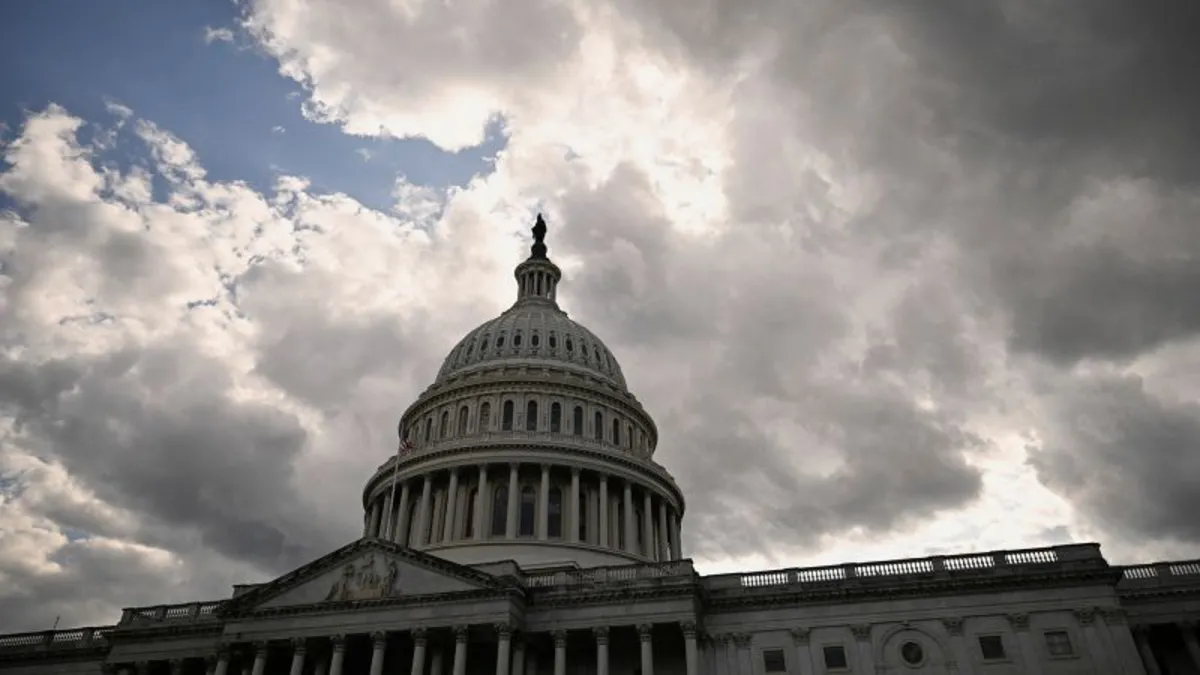
Following the recent downgrade of the United States' credit rating, the political landscape has become increasingly contentious. On Friday, the nation lost its last perfect credit rating, prompting a swift blame game between Republicans and Democrats. The downgrade was attributed to problematic debt levels that far exceed government revenue, as noted by Moody's Ratings. This situation has placed significant pressure on lawmakers from both parties to take decisive actions to improve the nation's fiscal situation. Failure to do so may lead to further downgrades, which could have even more severe consequences for the economy.
In the wake of the credit rating downgrade, House Republicans on the Budget Committee voted to advance a comprehensive legislative agenda, which could potentially worsen the fiscal outlook. Preliminary estimates from the nonpartisan Committee for a Responsible Federal Budget suggest that this agenda could add over $1 trillion to annual deficits by 2034 compared to projected figures for 2024. However, despite the Republican majority, this proposal faces numerous challenges in both chambers of Congress.
Former officials from the Trump administration have indicated that the proposed legislation, dubbed the “one, big, beautiful bill,” may require modifications to successfully pass through Congress. Some officials are adamant that the agenda, which includes trillions in tax cuts that exceed proposed spending reductions, will not contribute to the nation’s budget deficit. The deficit, which is the gap between government revenue and expenditures, is financed through borrowing from investors in US bonds and Treasuries, which yield varying interest rates.
In a recent CNBC interview, Stephen Miran, Chair of the White House Council of Economic Advisers, expressed optimism about the bill's ability to reduce the deficit. He stated that initiatives aimed at cutting waste, fraud, and abuse could potentially decrease the deficit by nearly half a percentage point of GDP. White House Press Secretary Karoline Leavitt echoed this sentiment, asserting, “This bill does not add to the deficit.” However, following Moody’s downgrade, skepticism regarding these claims has intensified, prompting lawmakers to proceed with greater caution.
The downgrade by Moody's has raised alarms among investors, who are increasingly aware of the risks associated with US debt. Michael Peterson, CEO of the Peter Peterson Foundation, which advocates for fiscal stability, remarked that the downgrade reflects longstanding concerns regarding fiscal decisions made in Washington. He noted that the country is on track to accrue an additional $22 trillion in debt over the next decade, exacerbating an already precarious financial situation.
On the day following the downgrade, yields on 30-year US bonds surged by over a percentage point, reaching 5%, while yields on shorter-term government debt also increased. This trend indicates that the perceived risks of investing in US debt, traditionally viewed as a safe asset, have escalated. Rising yields often translate to higher borrowing costs for consumers, as banks typically base interest rates on US Treasury yields.
As the political divide continues to hinder progress, Callie Cox, chief market strategist at Ritholtz Wealth Management, emphasized that the government deficit will only become a pressing issue when investors perceive it as such. She noted that investors are increasingly signaling their concerns regarding the deficit. Additionally, Ryan Sweet, chief US economist at Oxford Economics, indicated that the downgrade may lead to a reduction in the proposed tax cuts within Trump's legislative package to mitigate the deficit impact.
Sweet also predicted that the downgrade would lengthen the timeline for passing the bill, if it passes at all. Despite this uncertainty, top officials from the Trump administration, including National Economic Council Director Kevin Hassett, remain optimistic that the bill will be passed by mid-summer. As the situation unfolds, the intersection of politics and economic stability remains a critical focus for both lawmakers and investors alike.